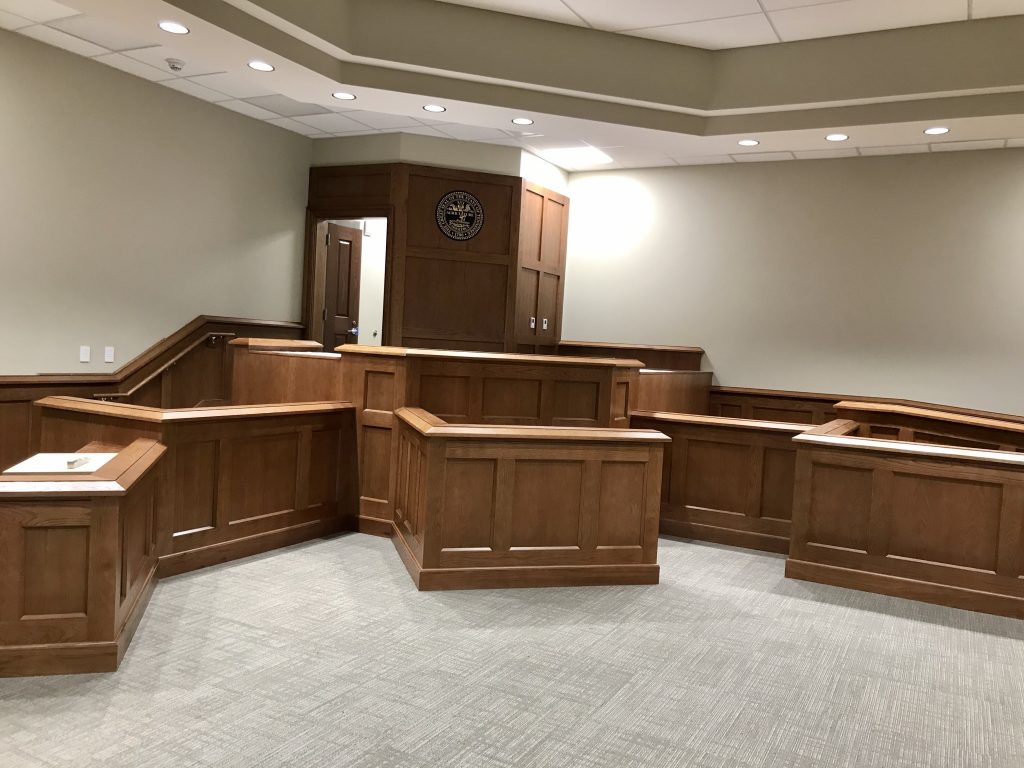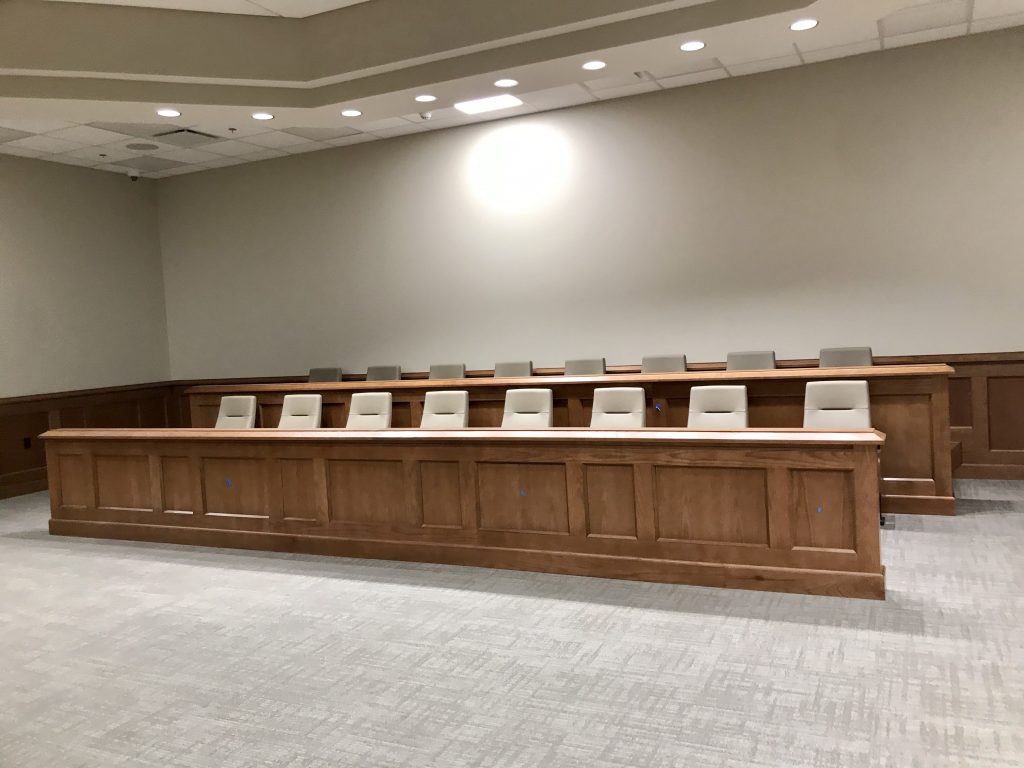“ALL RISE!”
“All you having business before this court, draw nigh and you shall be heard.
God Bless the United States, this state, and this Honorable Court. You may be seated.”
. . . . .
It was just another Monday morning in court. I was about five sips into my hot coffee and about that much awake, The day promised to be a very long one and the files I had to bring required a cart instead of a bag.
I heard the court opening that morning the same as I have thousands of times before, but this morning, the words jumped at me.

“Draw nigh and you shall be heard”
The formal call harkened me to the formal language of scripture in King James english. Draw nigh — come near. At first blush, it is comforting to think of God in these terms: we come, and He hears. After all, He does love justice.
But is God like an earthly judge?
In our legal system, you must physically avail yourself on the court to seek any remedy. To file suit, you must come to the courthouse to present your formal documents. Judges make decisions based on what is presented in court. The surest way to make sure the court rules against you is to not show up.
Is this how God “works?”
Draw Nigh
Under this inquiry, the first scripture I thought of was James 4:8, “Draw nigh to God, and he will draw nigh to you. Cleanse your hands, ye sinners; and purify your hearts, ye double minded.” (KJV)
This passage is more the exception than the rule when looking at all scripture as a whole. God, being all present, cannot be nearer or farther because he is everywhere at all times. David writes in Psalm 139:
Where can I go to escape Your Spirit?
Where can I flee from Your presence?
If I ascend to the heavens, You are there;
if I make my bed in Sheol, You are there.
You can see a picture of us drawing near in the Parable of the Prodigal Son, but there are two things to note. While Prodigal, he was still a son. This parable refers to the rebellious Christian who returns “home.” Second, even here, the Father comes while the son is a ways off.

Drawing nigh isn’t bringing ourselves to God for salvation or even sanctification. We can’t save or fix ourselves. The “drawing” of James is one of fellowship within an existing relationship.
But God
Christ came to us in our sin: “but God shows his love for us in that while we were still sinners, Christ died for us.” (Romans 5:8) I love how that passage begins. “But God” are my favorite words in scripture because they mean God is about to do something.
Romans 5:8 isn’t a picture of a Judge on a throne waiting for your petition. It’s one of a sovereign savior leaving his throne to step into the story. For example, in Exodus 13:18 we see this: “But God led the people around by the way of the wilderness toward the Red Sea. And the people of Israel went up out of the land of Egypt equipped for battle.”
We were sinners wholly undeserving of adoption, but God.
In salvation, Christ came to us. He draws near to us and draws us to him. He came from heaven to earth. He called twelve men to “Come. Follow me.” And he calls us all to Himself in salvation.
Christ speaks when we are silent. He came to us before we knew our need and called our name before we knew His. Only through Christ can we draw near to God. (Hebrews 7:19)

You Shall be Heard
There’s a popular song currently that details that we pray “to a God who listens.”
God, more than any earthly judge, listens to our hearts and concerns. Consider anytime Jesus, no matter how busy, passed by someone who earnestly called to Him. He stopped and looked not just at the needs the person expressed, but those they didn’t even understand,
Physical healing, food, water — God provides for physical needs, but in Christ’s death he gives us a healed relationship with Him, His Word, and Living Water.
He draws near to us, and He listens.
Court is adjourned.
Truthfully Yours,
DB
I loved this. I love reading UT.